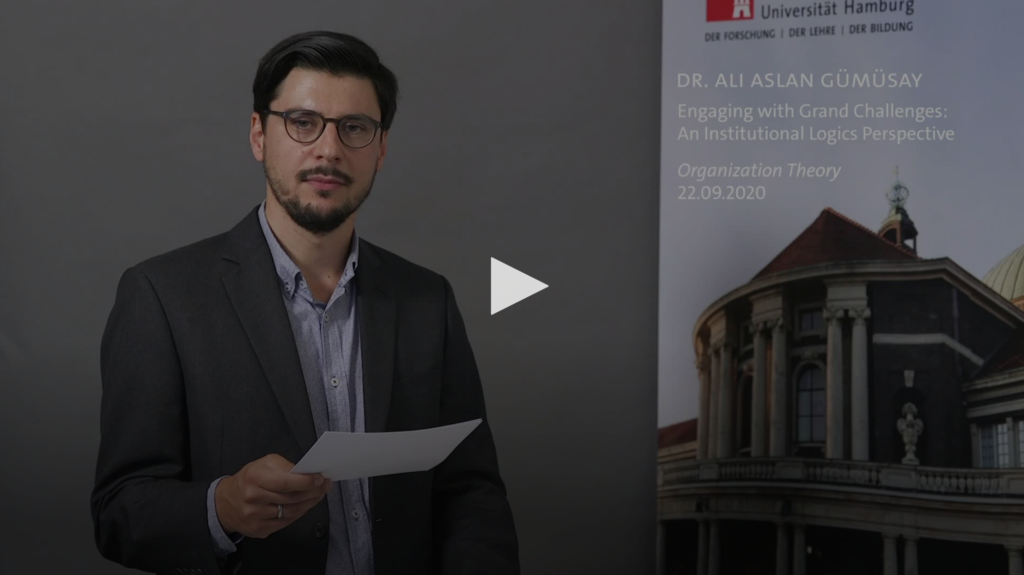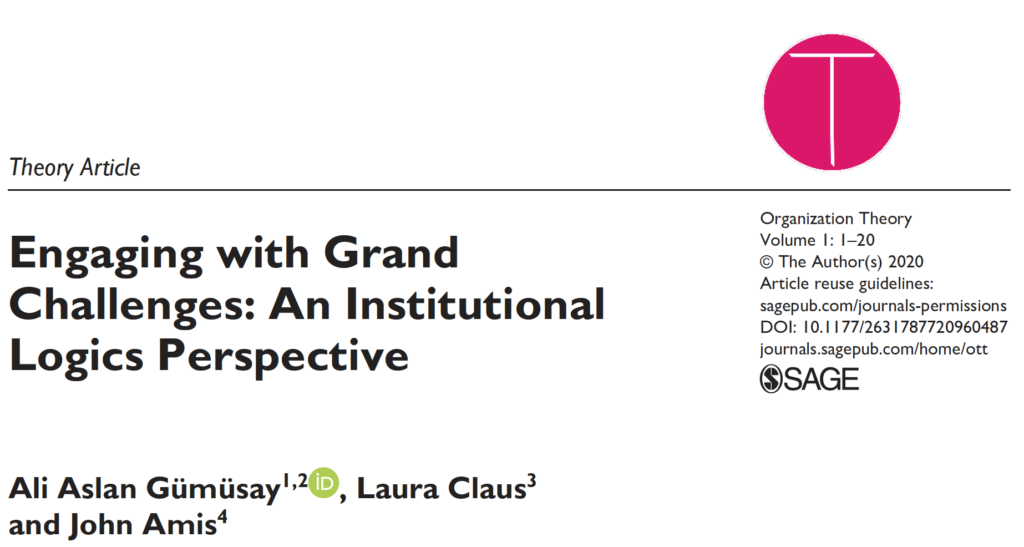
We live in troubled times. For long, humanity has sustained itself from the world’s resources. Recently, however, excessive production and consumption has threatened the “planetary boundaries” that sustain our existence, resulting in catastrophes such as biodiversity loss and the current climate crisis that we are in. At the same time, populism, extremism, and the polarization of societies is on the rise and social cohesion is under threat, with digital technologies allowing orchestrated misinformation campaigns to aggravate and challenge peace, democracy and social stability. In the context of these and other major societal concerns, it is apposite to ask what is the role of institutional theory in general, and in this case institutional logics in particular, in furthering our understanding of these so-called ‘grand challenges’.
This is what Laura, John and myself try to do in this article.

Grand challenges are fundamental societal concerns, and as such affect all of us in one way or another. We believe in the explanatory power and potential of the institutional logics perspective to further contribute to our understanding of some of the most pressing issues of our time. For this, we advocate for further reflection on four analytical dimensions: macro-level positioning, contextuality, temporality, and value plurality.
First, the notion of macro-level positioning links organizing principles to macro-level orders and embeds them in the interinstitutional system. It also embraces the environment as a key concern and logic. Second, contextuality moves away from a rather Northern-centric focus and takes into account the plurality of logics and their interaction across interinstitutional systems. Third, temporality is about the consideration of changing logics and logic constellations over time. Finally, value plurality brings back attention to the value-ladenness of logics themselves and offers a means to question concepts such as ‘the market’ and the market logic.
Integrating these four dimensions, we contend, will contribute towards a transformative institutional logics perspective in the sense that they offer key implications for our engagement with grand challenges. It will further open up opportunities for institutional scholars to make substantive contributions to society’s most pressing concerns.